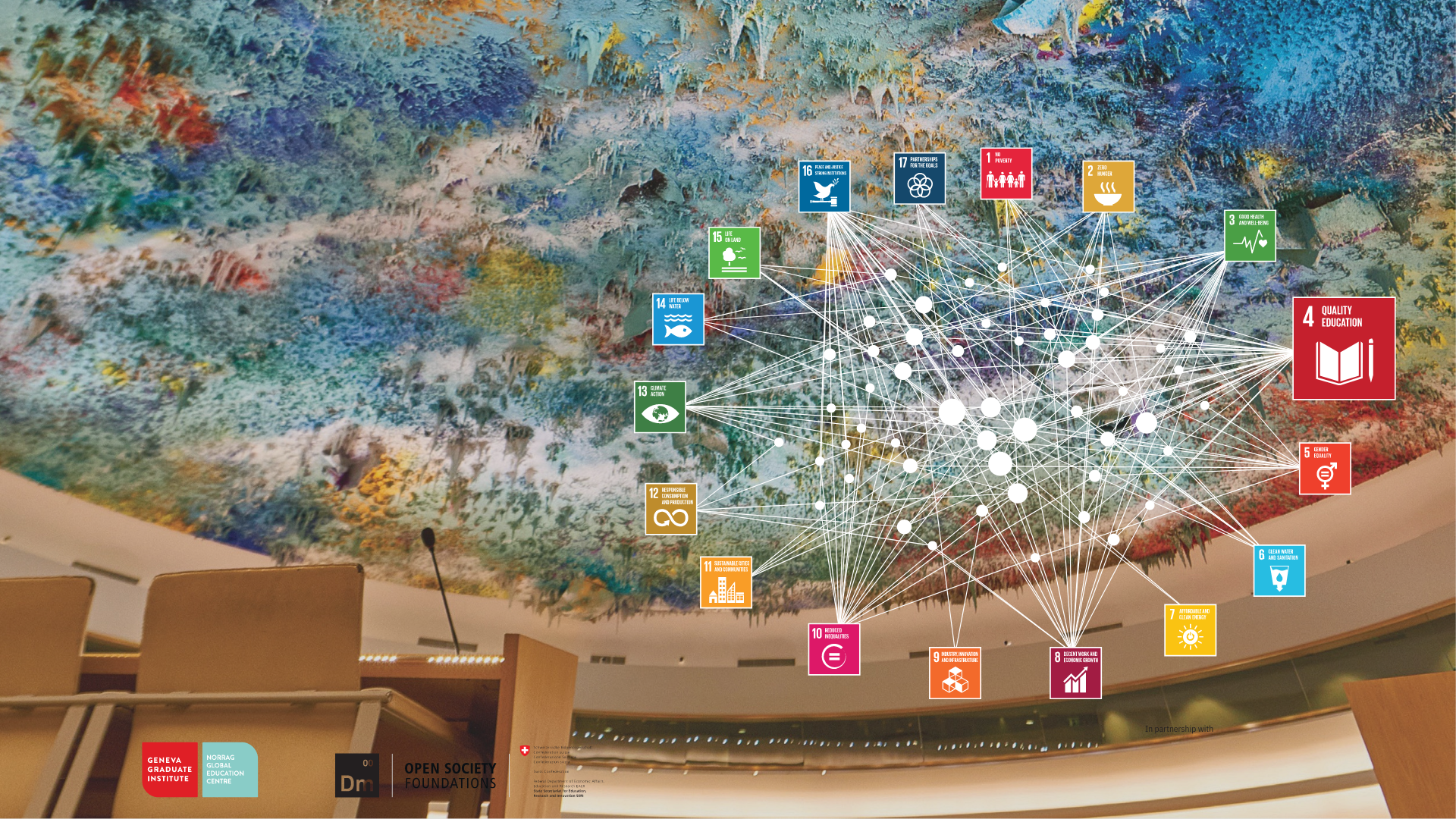Working Paper #14: Mapping the International Geneva Education Ecosystem
NORRAG launched Working Paper #14: Mapping the International Geneva Education Ecosystem at a briefing for the Permanent Mission of Switzerland to the United Nations Office and to the other international organisations in Geneva on 23 January 2024.
The briefing was introduced by Laetitia Kirianoff, Head of the Humanitarian Section, who spoke to the importance of better understanding the education landscape in International Geneva and the opportunities offered by International Geneva for working intersectorally across education and the other SDGs.
NORRAG’s Executive Director, Moira V. Faul, then presented our International Geneva project, which focuses on developing understanding of the ecosystem of international cooperation for education located in Geneva, and its effects globally, especially with the Global South. Financial support for this work was provided by the State Secretariat for Education, Research and Innovation (SERI), Swiss Confederation, the Swiss Agency for Development Cooperation (SDC) Education Unit and Open Societies Foundation.
Working Paper #14: Mapping the International Geneva Education Ecosystem reveals that there is much more work on education taking place in Geneva than it first appears. In it the authors examine how organisations that work on education and other SDGs experience, value and use the Geneva ecosystem in ways that further the achievement of SDG 4, and benefit–as they listen to–stakeholders in the Global South. They found that despite the coexistence of organisations and individuals working on several interrelated SDGs, it is a fragmented ecosystem. To leverage the relations already in place, systemic facilitation activities with International Geneva actors must be undertaken. Only with such facilitation, can International Geneva live up to the promise of its unique geopolitical context for developing a positively functioning ecosystem that can accelerate decision-making, goal achievement and funding towards aligned endeavours (such as the Sustainable Development Goals).
Dr Faul also introduced participants to the International Geneva portal that allows users to explore organisations in international Geneva that work on education and other SDGs: from the perspective of each of the SDGs as it relates to education, or indeed from different organisations, or map of Geneva. This portal was co-designed with a team of Geneva Graduate Institute students, resulting in a useful tool that is based on research evidence.
Petra Heusser from the Secretariat of the Geneva Global Hub for Education in Emergencies then introduced the Hub, its 50 members from a multitude of sectors, its priority to influence work on the ground through working with members and through convening, advocacy and fundraising for education in emergencies. While education can sometimes not be prioritized by decision makers, children and parents living through crises repeatedly prioritize education.
The event closed with a lively Q&A, with participants eager to know more about education in International Geneva and how to make better connections to others working on similar and very different issues.

